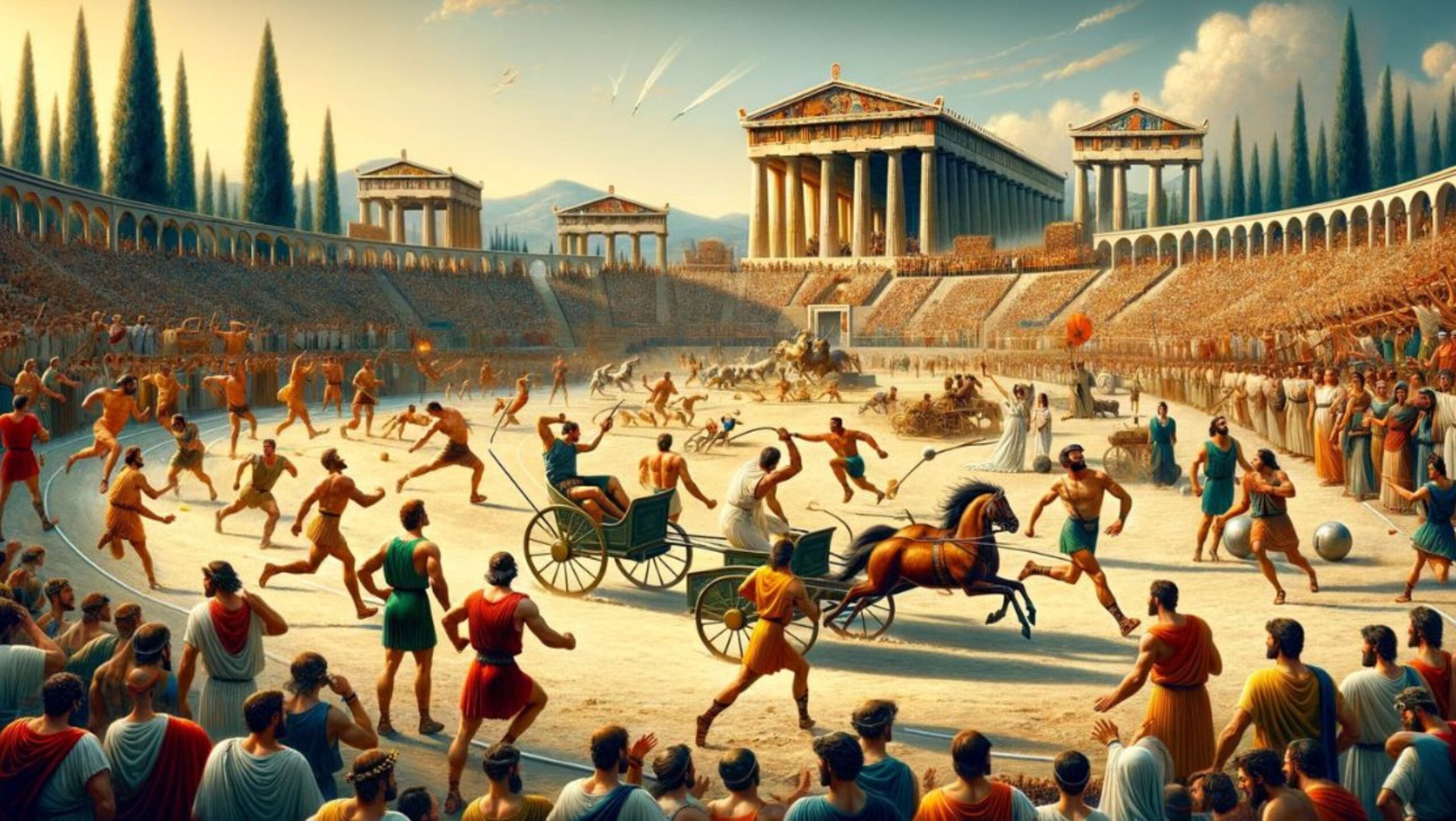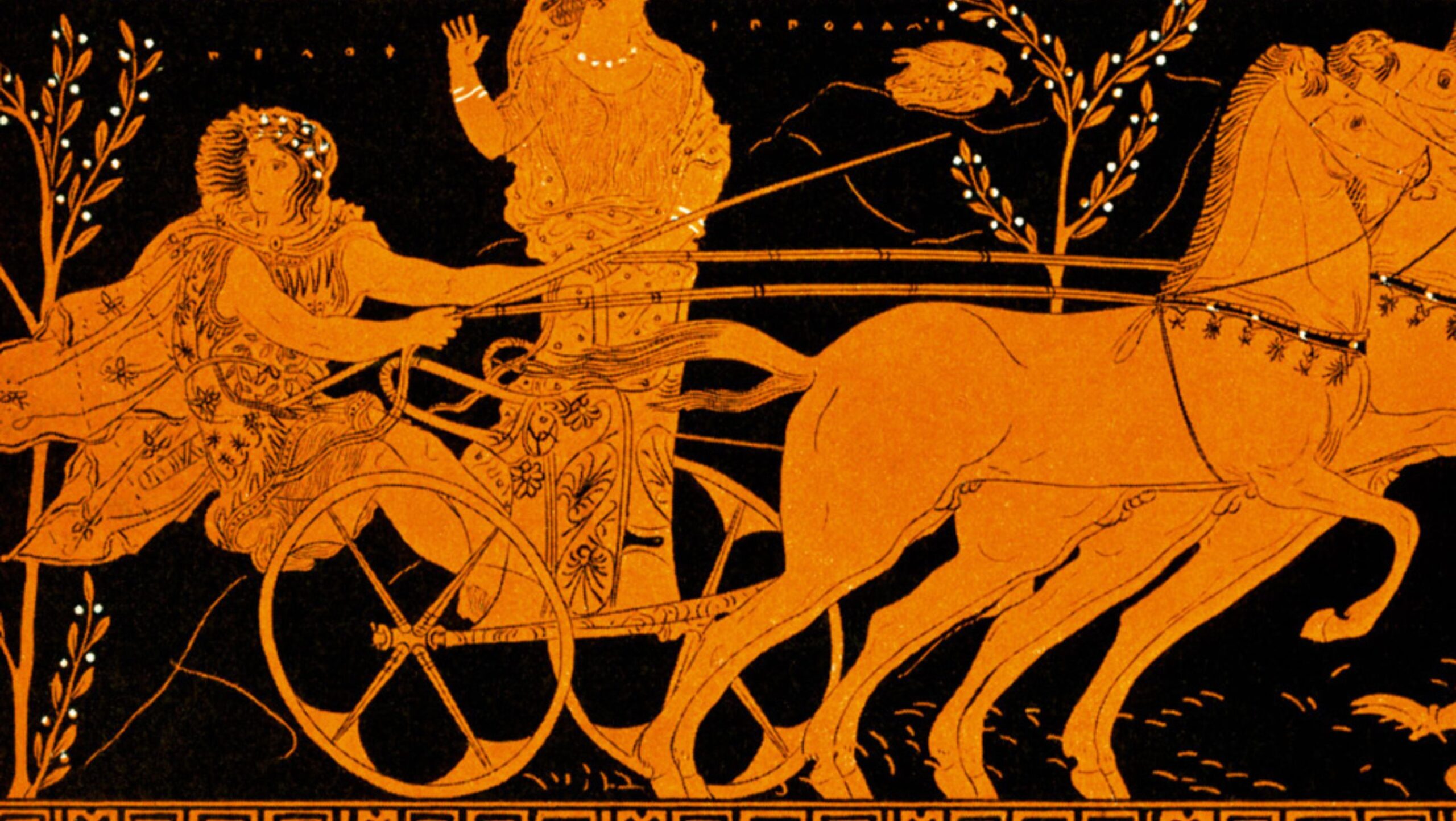Have you ever wondered how ancient Greek athletes achieved their legendary status? These titans of the past didn’t just wake up with Herculean strength or Hermes-like speed. They didn’t just stumble upon success in their sports – every win was hard-earned through relentless training, an unmatched level of commitment, and staying true to the traditions and beliefs that shaped them. From Leonidas of Rhodes securing victories across multiple Olympiads to Milo of Croton’s unmatched wrestling prowess – each story is a testament to what it meant to be an athlete in ancient Greece.
Table of Contents:
- Famous Ancient Greek Athletes
- Legendary Victories in the Ancient Olympic Games
- Training and Preparation of Ancient Greek Athletes
- Social Status and Rewards for Ancient Greek Athletes
- Conclusion
Famous Ancient Greek Athletes: Ancient Greek Athletes

The ancient Greeks were obsessed with physical prowess and athletic achievement. And for good reason – their civilization gave birth to the Olympic Games, which still captivate today’s world.
Over the centuries, these games produced some truly legendary ancient Greek athletes whose extraordinary feats have echoed through history. Let’s meet a few of these sporting superstars who left an indelible mark on the ancient Olympics.
Leonidas of Rhodes
Leonidas of Rhodes was the Usain Bolt of antiquity. This speed demon won the stadion race, diablos race, and hoplitodromos race in four consecutive Olympic Games from 164 to 152 BC. That’s 12 Olympic victories – a record that stood unmatched for over 2,000 years.
Move over, Cristiano Ronaldo. The highest-paid athlete of all time was actually Gaius Appuleius Diocles, a Roman charioteer. His winnings over a 24-year career totaled a staggering 35,863,120 sesterces. In today’s dollars, that’s roughly $15 billion. Not too shabby for an illiterate jockey from Lusitania.
Diagoras of Rhodes: Ancient Greek Athletes
Diagoras of Rhodes was the Muhammad Ali of ancient Greece – a boxing champion with a larger-than-life personality. He won at the Olympics in 464 BC and 460 BC and also won victories at the Isthmian, Nemean, and Pythian Games. His three sons and two grandsons all became Olympic champions as well. Talk about a dynasty.
Milo of Croton
Milo of Croton was a six-time Olympic wrestling champion and all-around strongman. Legend has it he once carried a bull on his shoulders and ate the entire thing in one day. He won the boys’ wrestling contest in 540 BC, then five consecutive men’s titles between 536 and 520 BC.
Theagenes of Thasos
Theagenes of Thasos was a real-life Hercules who dominated boxing and pankration (a brutal mix of wrestling and boxing). He won Olympic titles in 480 and 476 BC, and allegedly tallied over 1,400 victories in his career. The people of Thasos worshipped him as a god after his death.
These ancient Greek athletes were the superstars of their day – heroes who represented the pinnacle of human potential. Their exploits on the field of competition have enshrined them forever in the annals of sporting history.
Legendary Victories in the Ancient Olympic Games: Ancient Greek Athletes
The ancient Olympic Games were a showcase for breathtaking feats of athletic achievement. From superhuman displays of strength and endurance to unmatched skills with spear and chariot, the Olympics produced many legendary victories that still astound us today.
Chariot racing was the marquee event of the ancient Olympics, and no one did it better than Gaius Appuleius Diocles. This Roman charioteer racked up 1,462 wins in his career, earning the equivalent of $15 billion in prize money. That’s more than the total purse of every Kentucky Derby in history combined.
Undefeated Champions
Several ancient Olympians retired undefeated after capturing multiple titles. Milo of Croton won six consecutive wrestling crowns, while Hipposthenes of Sparta prevailed six times in the pankration. Leonidas of Rhodes earned 12 victory wreaths in four straight Olympics without a single loss.
Multiple Event Winners: Ancient Greek Athletes
Some competitors showed incredible versatility by winning different events. Phayllos of Croton held titles in the pentathlon, wrestling, and discus. Polydamas of Skotoussa won the pankration in 408 BC and added the boxing crown in 400 BC. Theagenes of Thasos captured boxing and pankration gold in 480 BC—a rare double in combat sports.
These remarkable achievements at the ancient games set a lofty standard for future Olympians to aspire to. They demonstrated the incredible heights of athletic excellence that humans can reach. And they left a legacy that continues to inspire athletes worldwide more than two millennia later.
Training and Preparation of Ancient Greek Athletes
The ancient Greeks took their sports very seriously. To achieve glory at the Olympics and other major games, athletes underwent intense physical and mental training and preparation.
Ancient Greek athletes followed strict training programs to build strength, speed, and stamina. Wrestlers and pankratiasts engaged in weight training and specialized techniques. Runners and pentathletes focused on sprints, long-distance runs, and cross-training. Boxers honed their footwork, punching, and defensive skills.
Most training occurred in the gymnasium – a combination workout facility, lecture hall, and social club. Athletes trained under the watchful eye of gymnastes (coaches), who were often former champions themselves. This ensured a transfer of knowledge from one generation to the next.
Mental Preparation Techniques
In addition to physical conditioning, athletes also engage in mental preparation. They adhered to strict diets and lifestyle regimens believed to promote peak performance. Many sought advice from philosophers who provided counsel on strategy, psychology, and character development.
Religion also plays a key role in an athlete’s mental state. Competitors made offerings to the gods, especially Zeus, hoping to earn their favor. Some, like the legendary wrestler Milo of Croton, even attributed their success to divine assistance.
Role of Religion and Mythology
The ancient Greeks believed that victory in athletic competition was a sign of favor from the gods. Zeus, in particular, was seen as the patron deity of the Olympics. Athletes visited his sacred oracle at Olympia to seek guidance and inspiration.
Mythological heroes like Heracles and Achilles were also revered as ideals of athletic perfection. Their superhuman feats served as motivation for mortal athletes striving for greatness. Some competitors even claimed to be descendants of these heroes, tapping into their divine bloodline for added strength and confidence.
Through a combination of intense physical training, mental discipline, and religious devotion, ancient Greek athletes molded themselves into formidable competitors. They left nothing to chance in their quest for everlasting glory on the sacred fields of Olympia.
Social Status and Rewards for Ancient Greek Athletes: Ancient Greek Athletes

In ancient Greece, victorious athletes were among the most celebrated members of society. They enjoyed a level of fame and prestige that rivaled even the greatest heroes and statesmen.
The top finishers at the Olympics and other major games were awarded a wreath of olive leaves, a symbol of peace and victory. But that was just the beginning of the honors heaped upon them.
Many Greek cities showered their champions with lavish gifts and lifetime pensions. Athens provided free meals at its civic building and 500 drachma (more than triple the annual earnings of a skilled worker). Sparta granted prime seating at public events and exemption from taxes.
Some athletes even had statues erected in their likeness, an honor usually reserved for gods and kings. The most famous example is the Diadoumenos of Polykleitos, a sculpture of an Olympic victor tying a ribbon around his head.
Fame and Prestige
Successful athletes were hailed as heroes and role models. Poets wrote odes, extolling their virtues and commemorating their triumphs. Pindar, the greatest lyric poet of ancient Greece, composed 45 victory odes for winners at the various games.
Athletes were also highly sought after as romantic partners and political allies. Unmarried women from noble families vied for their attention at banquets and festivals. Powerful leaders tried to associate themselves with popular champions to boost their own status and legitimacy.
Some athletes even leveraged their fame into positions of leadership. A six-time wrestling champion, Milo of Croton commanded the Crotoniate army in several battles. Alcibiades of Athens, an Olympic chariot racing victor, became a prominent general and politician.
Influence on Society: Ancient Greek Athletes
Adulation of athletes reflected the immense value that ancient Greeks placed on physical excellence. Sporting success was seen as a sign of moral virtue and divine favor. Champions were believed to embody the ideal of Kalos kagathos—a perfect balance of physical beauty and moral goodness.
This reverence for athletes had a profound impact on Greek culture. It inspired a fascination with the human form that found expression in art, literature, and philosophy. It also promoted a highly competitive mindset that spurred advances in various fields, from politics to science.
In many ways, ancient Greek athletes embodied their society’s highest aspirations. They represented the pinnacle of human achievement and served as living symbols of the values that defined classical civilization. Their influence can still be felt today every time a champion is crowned and celebrated for reaching the summit of their sport.
Key Takeaway: Ancient Greek Athletes
Meet the ancient Greek legends who set unbeatable records, from Leonidas of Rhodes, the Usain Bolt of antiquity, to Gaius Appuleius Diocles, a charioteer richer than Cristiano Ronaldo. They trained hard and lived largely, showing us what it means to reach for greatness.
Conclusion: Ancient Greek Athletes
Retracing the steps of these formidable competitors millennia ago, we uncover more than just tales of physical prowess; we find enduring lessons on discipline, resilience, and the pursuit of excellence that transcend time. The legacy left by these ancient Greek athletes isn’t merely found in history books but lives on as inspiration for anyone striving towards personal greatness today. They show us that, even as gadgets get smarter and cultures shift, the core of what people can achieve doesn’t waver.

